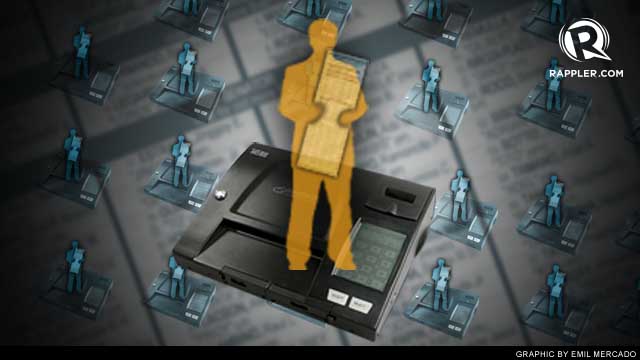SUMMARY
This is AI generated summarization, which may have errors. For context, always refer to the full article.

MANILA, Philippines – Critics raised alarm bells Wednesday, May 29, after poll chief Sixto Brillantes Jr mentioned discrepancies between the automated election tally and the manual audit.
Discrepancies – which Brillantes prefers to call “variances” – could point to counting irregularities. The law intended the random manual audit (RMA) to check the accuracy of the numbers provided by the precinct count optical scan (PCOS) machines.
Based on the information available so far, however, fears over these discrepancies remain unfounded.
Required under the Automated Election Law, the RMA is done by manually counting the votes and comparing these with the PCOS tally.
Brillantes on Tuesday, May 28, indeed said initial reports pointed to “discrepancies,” but he didn’t have enough figures to support it.
The Comelec, in fact, allows a certain number of discrepancies to still call the PCOS count accurate. Comelec Resolution No. 9595, which covers the RMA, allows a margin of 10 votes per candidate per position “in the event of discrepancy.”
The Comelec hasn’t consolidated its data on these, according to the poll chief.
And, even if the Comelec has determined the number of discrepancies, Comelec Resolution No. 9595 still requires auditors to double-check the audit. This is supposed to rule out human error and determine if a discrepancy “is valid.”
On Wednesday, Brillantes said the matching between the PCOS count and the manual audit “cannot be perfect.” He explained that human error comes into play.
Mock polls: PCOS cleared
The public saw a preview of this year’s RMA after the mock elections in select precincts nationwide on February 2. The RMA committee then found 15 discrepancies between the PCOS count and the manual audit.
In a report obtained by Rappler, the committee attributed the discrepancies to human error. (Watch Rappler’s video report below.)
The discrepancies, according to the RMA committee, came from a mix of human factors and conditions that “were far from conducive.”
The human factors included the auditors’ lack of experience and failure to follow instructions, according to the memorandum by RMA committee member Ma Agnes Carreon to committee chair Henrietta “Tita” de Villa. The memo read:
-
“Although the audit team was trained, the audit of the mock election results was their first or maiden hands-on experience with auditing automated election results.
-
“The audit team committed observable deviations from the general instructions. Ostensibly, the ‘check and balance’ mechanism between the manual count and verification groups was obviated.”
The unfavorable conditions included humidity and lack of food and water. The report said:
-
“The audit team arrived at around 4 o’ clock in the afternoon; however, the board of election inspectors finished their duties well past 10 o’ clock in the evening. On this note, the audit team was asked to stop after 3 o’ clock in the early morning.
-
“There was no provision for food and water for the audit team.
-
“The polling precinct was not sufficiently ventilated; thus, the said room became more humid as the number of observers increased.
-
“Members of the media and poll watchers from a citizens’ arm groups was hounding the audit team.”
Following the initial RMA, however, a new team re-audited the results “under controlled conditions,” such as doing this in a well-ventilated office at midday.
The new audit resulted in a “marked improvement,” according to the RMA committee. It showed no discrepancy between the PCOS count and the manual tally.
Is this also the case in the actual elections? The public will know by June 13, when the Comelec is expected to release its RMA report. – Rappler.com
Add a comment
How does this make you feel?
There are no comments yet. Add your comment to start the conversation.